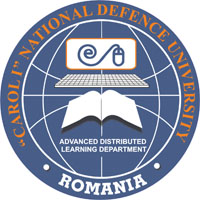NEW TRENDS IN PHYSICS TEACHING USING STEM PRINCIPLES IN EDUCATIONAL PROJECTS RELATED BY SPACE SCIENCE AND TECHNOLOGY
NEW TRENDS IN PHYSICS TEACHING USING STEM PRINCIPLES IN EDUCATIONAL PROJECTS RELATED BY SPACE SCIENCE AND TECHNOLOGY
Author(s): Emil Ştefan Barna, Diana Cristina Bejan, Cristina MIRONSubject(s): Education
Published by: Carol I National Defence University Publishing House
Keywords: STEM concept; Project-Based Learning; 21st century skills; Physics Education; Science and Technology Space
Summary/Abstract: This paper demonstrates that using STEM and PBL are strong learning instruments for students, in Physics classes. This is emphasized by introducing the elements of space science and technology in the learning process. A new approach of teacher-student relationship is necessary, in the context of national and international educational systems evolution, in accordance with the knowledge fields’ multiplication, the development of new technologies and increasing the educational needs. It is presented an experimenting learning approach with small groups of students, trying to solve complex challenges, launched in competition forms by large international researched institutes. In one of the cases, students must build a mini satellite that had all the subsystems of a real satellite and perform a scientific experiment. In the second case, students must write a code to program robots SPHERES that are on the International Space Station. This paper shows how to achieve the specific objectives of each project, being described the chosen design and strategy. The paper also responds to some important questions: How to build a strong team? How to distribute the tasks within the team? What missions to plan to achieve during the competition? How to phase the project, breaking it into small steps to be realized on time and contribute to the ultimate goal? How to use the full students’ potential? How to learn from your and others’ mistakes, how to revise and correct? How to present your results, analyzing the success or failure of the mission? How to become a winning team? The approach can be extended to the entire group of students at different levels of learning.
Journal: Conference proceedings of »eLearning and Software for Education« (eLSE)
- Issue Year: 11/2015
- Issue No: 03
- Page Range: 452-459
- Page Count: 8

